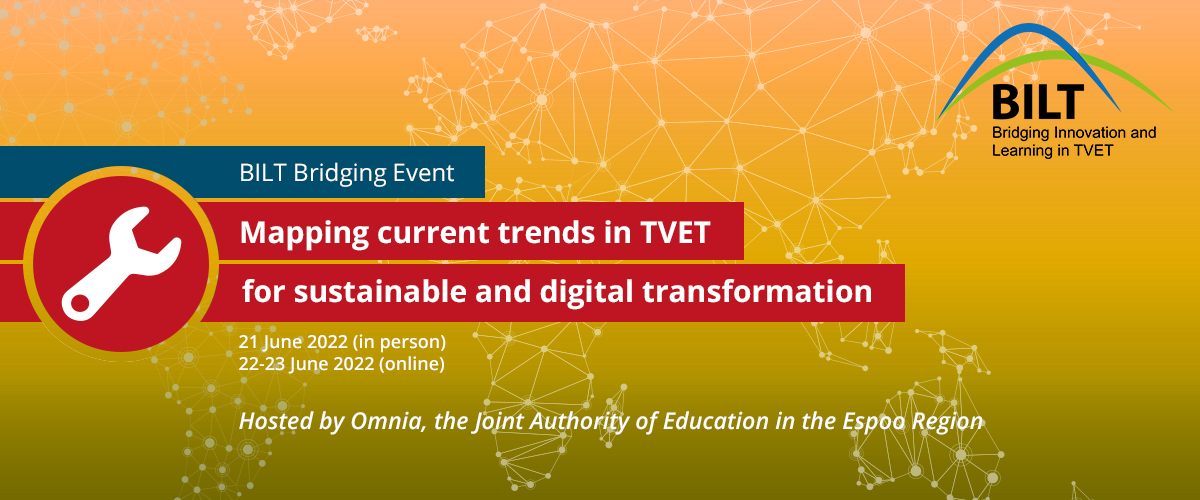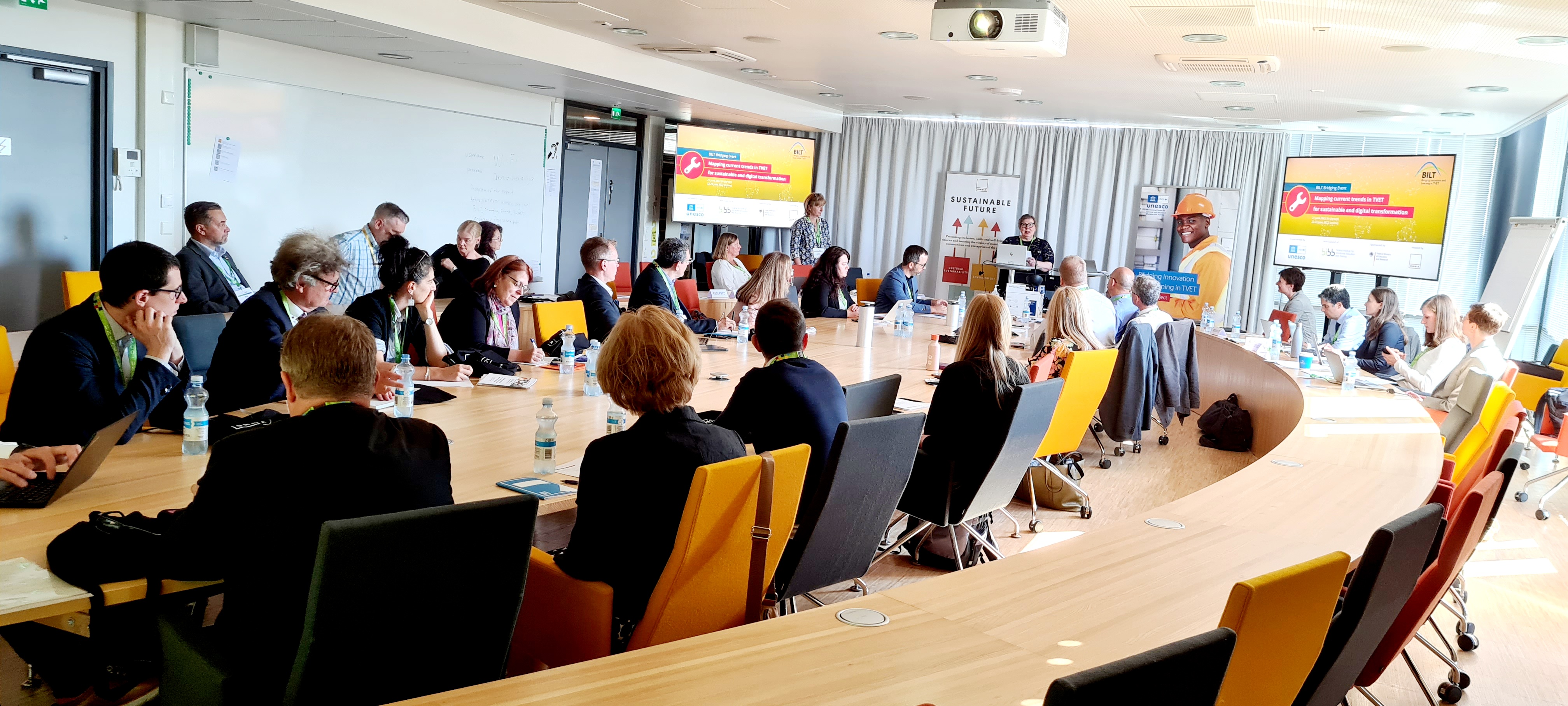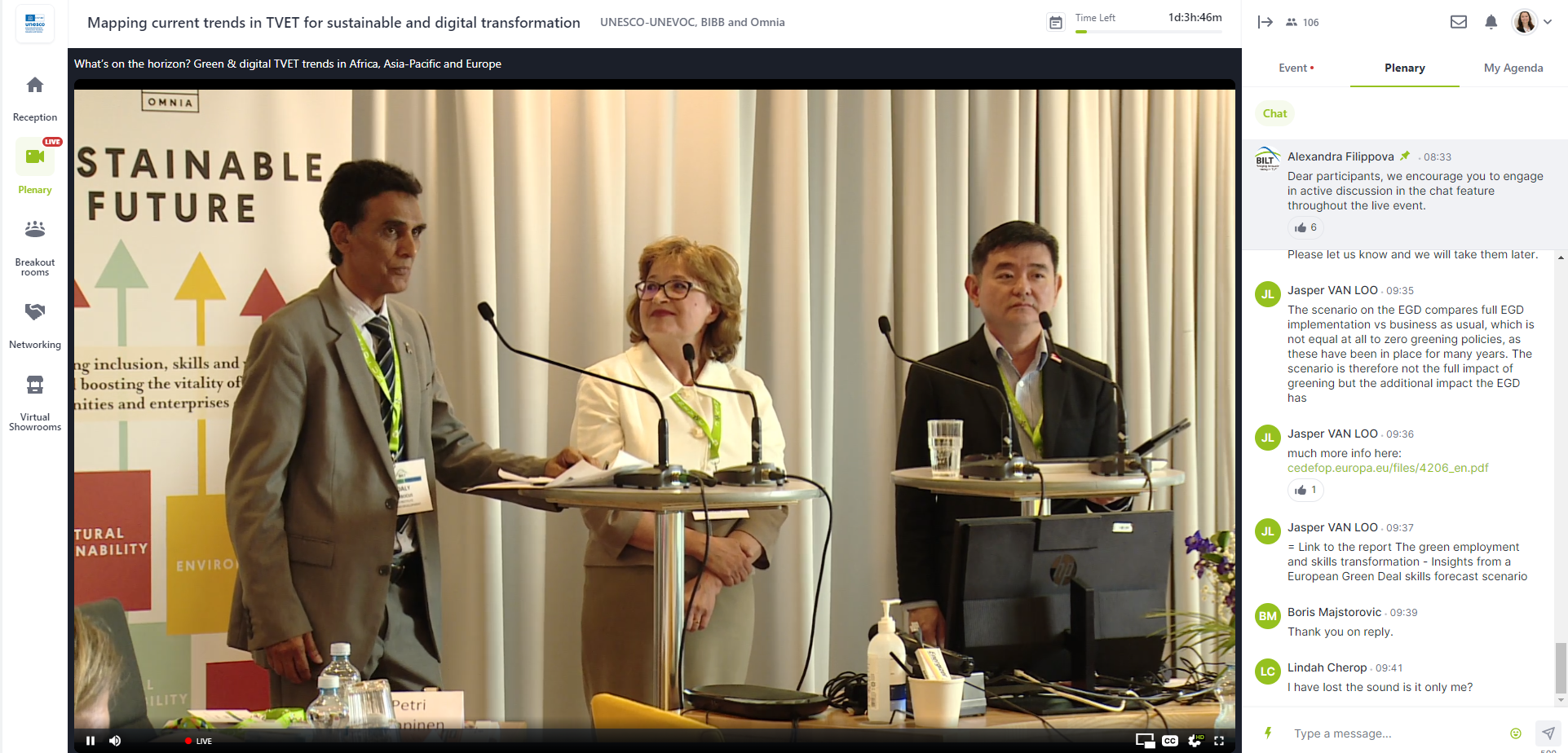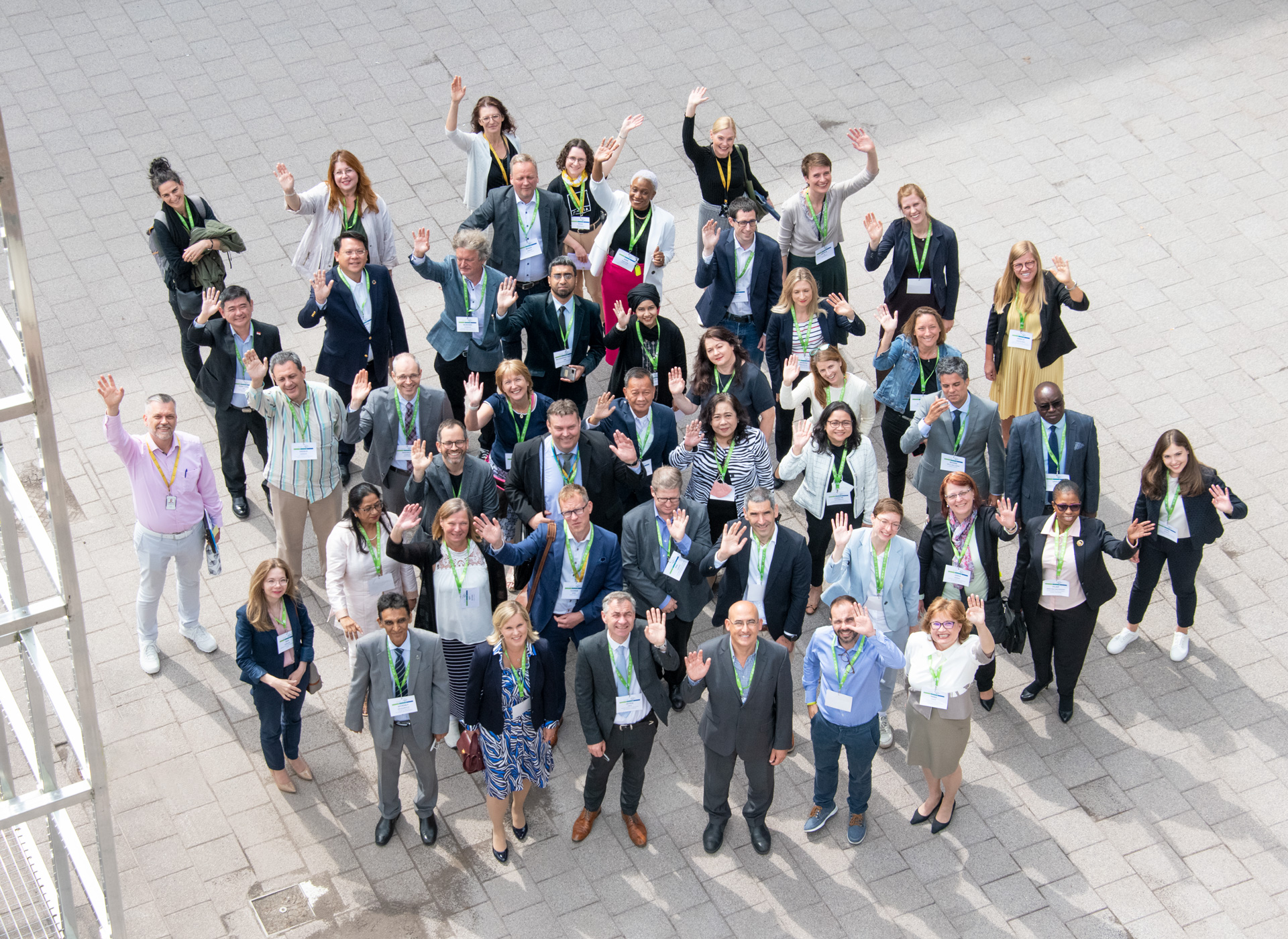About BILT: Our approach | Themes | Who we are
Get involved: News and events | BILT community | Expert group | Self-Reflection Tool
Knowledge base: Innovative and promising practices | Atlas of emerging trends | BILT library | TVETipedia

The conference, which Omnia hosted at their state-of-the-art education and training facility, offered multiple peer learning and crowdsourcing opportunities. It challenged participants to consider which competencies and qualifications will lose or gain importance when transforming towards a sustainable and digital future and what new qualifications and competencies (NQC) will be required. Over three intensive days, participants put forward new ideas and direction for future project approaches and activities.

Participants were also introduced to the BILT Peer-Learning Wheel, an interactive tool that maps institutions to their area of expertise in the Three I’s process and helps them find potential partners for collaboration and idea-sharing. Conference participants used the tool to exchange ideas on excellence and innovation between various European TVET systems.
Digital and green trends in TVET in Africa, Asia-Pacific and Europe
Days two and three presented opportunities to explore digital and green trends with a particular focus on the rapidly changing construction and tourism/hospitality sectors. Discussions highlighted that the dual green and digital transition is experienced differently in each sector and region. For example, under Singapore’s Industry Transformation Programme (ITM) for the construction sector, digitalization and greening TVET are considered twin transition imperatives in reforming curricula and increasing the nation’s competitiveness in the sector. Meanwhile, the Mauritius Institute of Training and Development (MITD) highlighted their focus on fostering a responsible and sustainable hospitality/tourism industry. As a Small Island Developing State (SIDS) that is particularly affected by climate change, investing in green technologies and a green policy in the value chain is critical. The contrast between the regions reflects the complexity of thinking necessary to create and work with multiple scenarios.

Overall, the conference confirmed the challenges faced by TVET in a diverse world. However, these challenges are also opportunities for BILT and everyone from the global TVET community to positively impact education in Africa, Asia-Pacific and Europe by working together to create future-proof TVET systems.
BILT Agenda 2025
The BILT Agenda 2025 is called ‘Promoting modern and competitive qualifications and competencies in TVET through international bridging of innovation and learning’. Its primary objective is to build new bridges and use the existing ones more effectively. The agenda encompasses four commitments and concrete BILT project activities to be actioned over the next three years.
Presentations


Omnia, the Joint Authority of Education in the Espoo Region
The BILT project is implemented by
with support of
and sponsored by